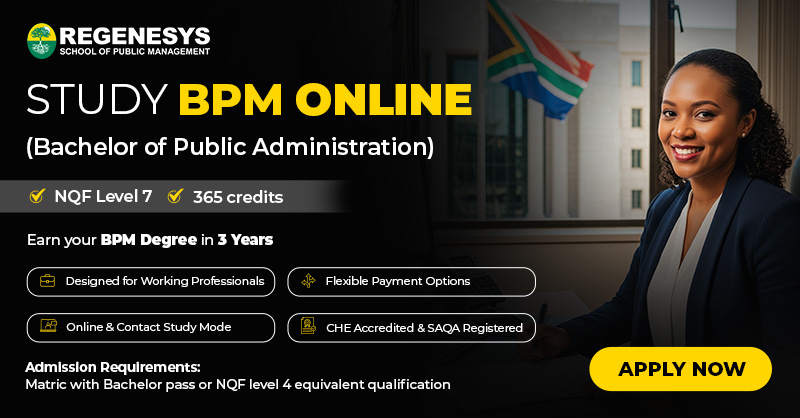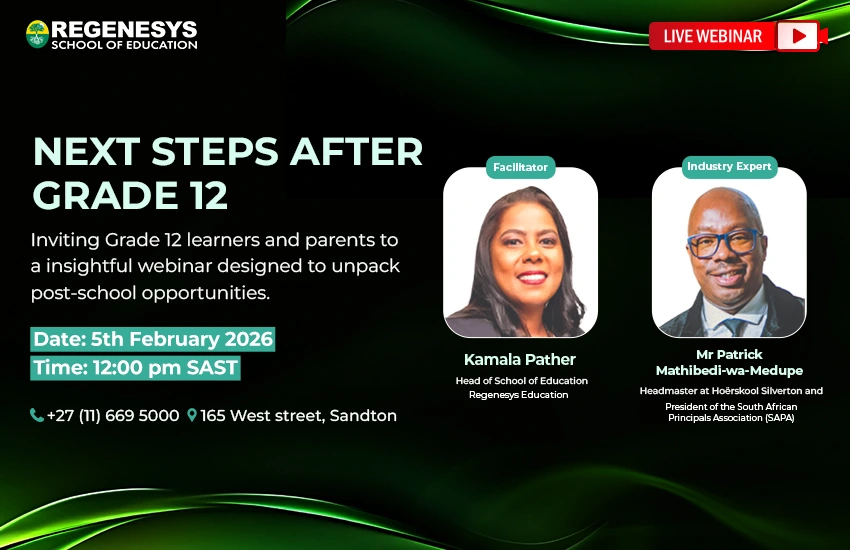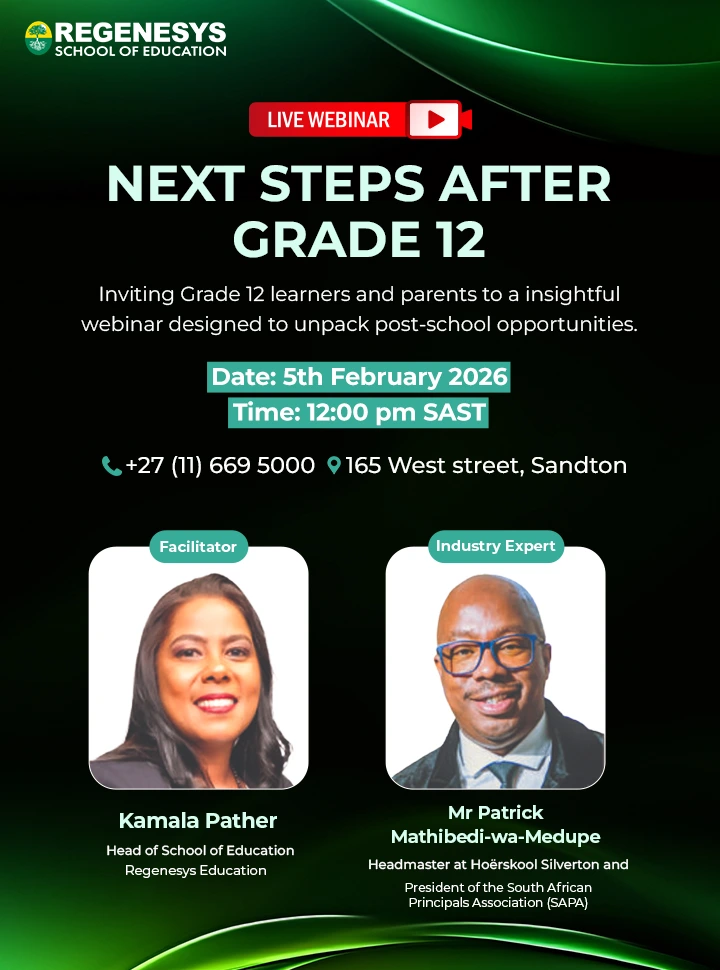Embarking on higher education as a first-generation BPM student in South Africa presents unique challenges and opportunities. While the pursuit of a Bachelor of Public Management opens doors to impactful careers in governance and public service, it also requires careful financial planning. Understanding how to manage educational expenses, access funding, and build a sustainable financial plan is crucial for success.
In this article, we will explore practical financial strategies for first-generation BPM students in SA, focusing on budgeting, saving, seeking mentorship, and planning for long-term financial health.
Table of Contents
- Personal Budgeting with a Guide
- Support Circles: Peer Advice, NGO Mentorship, and Community Resources
- Smart Saving Habits for First-Generation BPM Students in SA
- Emotional Planning and Family Financial Planning
- Exploring Grant Sources and First-Gen BPM Funding Tips
- Thriving Beyond Survival: Long-Term Growth for BPM Graduates
- Conclusion
- First-Generation BPM Students in SA – FAQ
Personal Budgeting with a Guide
Effective budgeting is the cornerstone of financial stability for any student. For first-generation BPM students in SA, creating a comprehensive budget helps in managing tuition fees, study materials, and living expenses. A public administration budget guide can provide insights into allocating funds efficiently, distinguishing between needs and wants, and prioritising essential expenditures.
Listed below are some steps first-generation BPM students in SA can use to create a personal budget:
Assess Income Sources – Identify all potential income streams, including parental support, part-time jobs, and scholarships.
List Expenses – Categorise expenses into fixed (e.g., tuition, rent) and variable (e.g., groceries, entertainment).
Set Financial Goals – Establish short-term and long-term financial objectives, such as saving for a laptop or building an emergency fund.
Monitor Spending – Regularly track expenditures to ensure adherence to the budget.
Adjust as Needed – Review and modify the budget periodically to accommodate changes in income or expenses.
Utilising budgeting tools and apps can simplify this process, providing visual representations of spending patterns and helping to stay on track.
Read more on Is a Bachelor of Public Management in Demand in South Africa? here

Support Circles: Peer Advice, NGO Mentorship, and Community Resources
Building a support network is invaluable for first-generation BPM students in SA. Engaging with peers, seeking NGO mentorship, and tapping into community resources can provide guidance, encouragement, and practical assistance.
Listed below are some ways in which first-generation BPM students in SA can build a support network:
Join Student Organisations – Participate in local or online societies related to public management to connect with like-minded individuals.
Seek Mentorship – Approach faculty members, alumni, or professionals in the field for mentorship and career advice.\
Utilise NGO Resources – Many non-governmental organisations offer support services, including tutoring, career counselling, and financial advice.
Engage in Community Activities – Volunteering and community involvement can expand your network and provide practical experience.
These support circles not only offer emotional and practical support but also open doors to opportunities and resources that might otherwise be inaccessible.
Read more on The Advantages of Pursuing a Bachelor of Public Management here
Smart Saving Habits for First-Generation BPM Students in SA
Developing smart saving habits is a critical step towards achieving financial independence, particularly for first-generation BPM students in SA. Starting early, being consistent, and making deliberate choices about spending can result in substantial savings over time, which can help cover tuition, living expenses, and unexpected costs. Beyond simply cutting costs, smart saving involves creating a strategy that aligns with both short-term needs and long-term goals.
Listed below are some effective saving strategies that first-generation BPM students in SA can practice:
Automate Savings – Set up automatic transfers from your main account to a dedicated savings account. This ensures a portion of your income or allowance is consistently saved without requiring constant attention. Even small, regular amounts can accumulate significantly over the course of your studies.
Cut Unnecessary Expenses – Analyse your spending patterns to identify non-essential costs. Consider preparing meals at home instead of eating out, sharing transport with fellow students, or limiting discretionary purchases like streaming subscriptions. Small adjustments can free up money for tuition, books, or emergency funds.
Use Student Discounts – South Africa offers numerous student discount programmes, ranging from software licences and public transport to retail and entertainment. Always carry your student card and research online for deals, such as discounted laptops, Microsoft Office, or museum entry fees, which can significantly reduce your educational costs.
Set Up an Emergency Fund – Life can be unpredictable, and having a financial cushion can prevent stress and debt accumulation. Aim to save at least one month’s worth of living expenses as a starting point. Gradually, this fund can grow to cover several months, giving you peace of mind in case of unexpected medical expenses, travel needs, or urgent academic costs.
Track Your Progress – Maintaining a record of your savings goals and achievements helps to stay motivated. Use budgeting apps, spreadsheets, or journals to monitor deposits, identify patterns in spending, and adjust your strategies as necessary.
Prioritise High-Interest Savings Options – Explore bank accounts or investment options that offer higher interest rates for students. Even modest interest can compound over time, enhancing your savings without additional effort.
By adopting these strategies, first-generation BPM students in SA can manage their immediate expenses more effectively and also lay a strong foundation for long-term financial stability. Consistent saving habits reduce reliance on loans, mitigate stress related to unforeseen costs, and provide the freedom to focus on academic and career goals.
Read more on Exploring the Core Subjects in Bachelor of Public Management (BPM) here
Emotional Planning and Family Financial Planning
Financial decisions are often intertwined with emotions, family expectations, and cultural values. For first-generation BPM students in SA, managing the balance between personal aspirations and family responsibilities requires a careful, thoughtful approach.
Students often face pressure to contribute to household finances while pursuing their studies, making it essential to integrate both emotional and financial planning.
Listed below are some approaches that first-generation BPM students in SA can use to manage emotional and family financial planning:
Communicate Openly – Start conversations with family members about your educational goals, anticipated expenses, and funding requirements. Transparent discussions about financial challenges help ensure everyone understands your priorities and reduces misunderstandings.
Set Boundaries – While family contributions can be valuable, it is important to establish clear boundaries regarding financial assistance. Decide what you can afford to ask from family members and what responsibilities you will manage independently. This prevents tension and helps maintain healthy relationships while pursuing your education.
Involve Family in Planning – Where appropriate, involve family members in the budgeting process. This shared approach can strengthen family cohesion and ensure that expectations align with reality. For instance, jointly reviewing potential grant sources, tuition plans, or living expenses can help the household support your goals more effectively.
Seek Professional Advice – Complex financial decisions, such as managing loans, grants, or part-time income, may benefit from professional guidance. Consulting a financial advisor can provide clarity on repayment plans, investment options, and budgeting strategies, helping students make informed choices while maintaining family harmony.
Address Emotional Wellbeing – Balancing studies and family responsibilities can be stressful. Incorporate strategies to manage stress, such as mindfulness, exercise, or peer support groups. Emotional planning helps students make rational financial decisions while maintaining mental health and motivation.
Plan for Future Obligations – Consider both immediate educational expenses and potential future family commitments. Early planning ensures that you can meet personal goals without compromising family responsibilities, providing long-term stability for both yourself and your household.
Balancing emotional considerations with practical financial planning equips first-generation BPM students in SA to navigate their studies successfully while maintaining healthy family dynamics. By fostering open communication, establishing boundaries, and seeking guidance when necessary, students can create a sustainable financial plan that supports both personal and familial aspirations.

Exploring Grant Sources and First-Gen BPM Funding Tips
For first-generation BPM students in SA, accessing funding is often one of the most significant challenges when pursuing higher education. Identifying and applying for available grant sources can help reduce financial stress, making it possible to focus on studies and long-term career goals. Understanding the different types of funding opportunities and developing a strategic approach to applications is key to securing financial support.
Listed below are some potential funding sources:
Government Scholarships – Research national and provincial scholarship programmes designed to support students in public management and related fields. These scholarships often consider academic performance, financial need, and community involvement.
University or College Grants – Many institutions offer internal grants and bursaries for students who meet specific criteria. Even if amounts are modest, these grants can help offset tuition, accommodation, or study materials.
Private Organisations and Foundations – Numerous private companies, foundations, and NGOs provide scholarships or grants to students pursuing public management or business-related degrees. Check eligibility requirements and deadlines carefully.
Crowdfunding and Community Support – Online platforms can be used to raise funds for tuition, books, or living expenses. Sharing your story with friends, family, and community networks can generate meaningful support.
Tips for securing funding:
Apply Early – Start your applications as soon as possible to ensure you meet all deadlines and have time to gather supporting documents.
Prepare Documentation – Ensure that academic records, financial statements, letters of recommendation, and other required materials are complete and organised.
Write a Compelling Personal Statement – Clearly communicate your goals, academic achievements, challenges, and reasons for seeking funding. Personalised, well-written statements often stand out in competitive selection processes.
Follow Up – After submitting applications, check on the status to confirm receipt and understand next steps. This demonstrates diligence and commitment, which can positively influence outcomes.
Seek Guidance – Consider reaching out to financial aid offices, mentors, or peers with experience in funding applications. Their advice can provide insights that improve your chances of success.
By proactively exploring grant sources and following these first-gen BPM funding tips, students can alleviate financial pressures and dedicate more energy to their studies. A strategic approach to funding not only supports immediate educational costs but also builds confidence in managing finances independently.
Read more on Reviewing the Curriculum of Bachelor of Public Management (BPM) at Regenesys School of Public Management here
Thriving Beyond Survival: Long-Term Growth for BPM Graduates
Financial planning does not end when studies are complete. For first-generation BPM students in SA, long-term success requires strategic career planning, skill development, and disciplined money management. By adopting these approaches, graduates can achieve financial independence and career growth.
Strategies for long-term financial growth:
Invest in Professional Development – Pursue certifications or short courses to enhance employability and career advancement.
Build a Professional Network – Attend industry events and connect with professionals for mentorship and opportunities.
Plan for Retirement – Start contributions early to benefit from compound interest through provident funds, pensions, or annuities.
Maintain Financial Discipline – Continue budgeting and saving to manage income effectively and avoid debt.
Diversify Income Streams – Consider part-time work, consulting, or freelancing to supplement earnings.
Set Long-Term Goals – Break financial objectives, like property or business investments, into achievable milestones.
Stay Informed – Monitor economic trends and sector developments to make proactive financial and career decisions.
By focusing on these strategies, first-generation BPM graduates in SA can thrive professionally and financially after completing their BPM.

Conclusion
Being a first-generation BPM student in South Africa comes with unique challenges, but careful financial planning can make the journey manageable and rewarding. By mastering budgeting, building support networks, developing saving habits, balancing family expectations, and exploring funding opportunities, students can reduce financial stress and focus on their studies.
Long-term strategies, including professional development, networking, retirement planning, and disciplined money management, set the foundation for financial independence and career success. For more information on advancing your education and preparing for a career in public management, explore the Regenesys Bachelor of Public Management programme.
Visit the Regenesyswebsite and enrol for our upcoming October intake today. Hurry and apply before the deadline!
First-Generation BPM Students in SA – FAQ
How can students track and maintain financial discipline?
Using budgeting apps, spreadsheets, or journals to monitor income, expenses, and savings goals allows students to adjust spending habits, prioritise needs, and stay on track toward financial stability.
How can first-generation BPM students access funding?
Students can explore government scholarships, university grants, private foundation support, and community crowdfunding. Applying early, preparing documentation, and writing compelling personal statements improve chances of success.
What are the benefits of starting an emergency fund during studies?
An emergency fund helps cover unexpected expenses like medical costs, travel emergencies, or urgent academic needs, reducing reliance on loans and financial stress.
How should students balance family financial expectations with personal educational goals?
Open communication, setting boundaries, involving family in planning, and seeking professional advice are essential. Students should establish clear responsibilities and maintain mutual understanding with family members.
What long-term financial strategies should BPM graduates adopt?
Graduates should invest in professional development, maintain disciplined budgeting, diversify income streams, plan for retirement, set long-term goals, and stay informed about sector and economic trends.
How can peer advice and NGO mentorship support financial planning?
Peer advice offers practical insights into managing costs and resources, while NGO mentorship can provide guidance on scholarships, career pathways, and navigating public sector opportunities.
Why is emotional planning important alongside financial planning?
Managing stress, family expectations, and personal goals helps students make rational financial decisions and maintain mental well-being, which supports academic performance.







